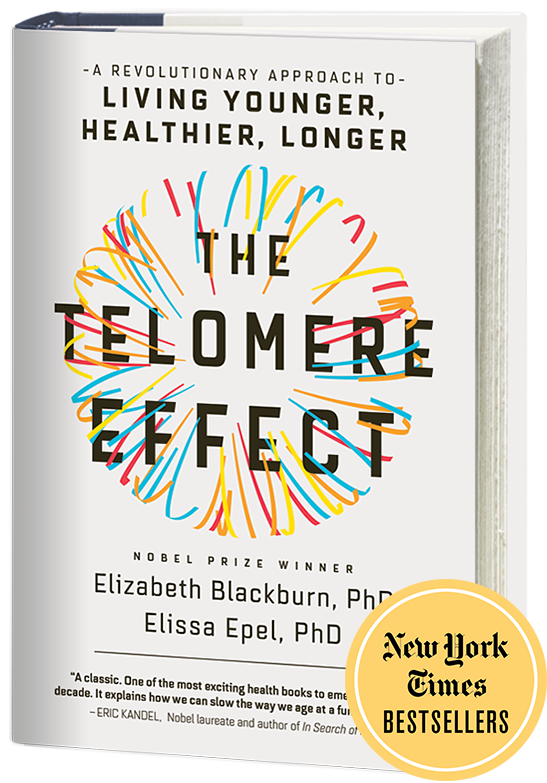***This book was reviewed for the San Francisco Book Review
The Telomere Effect by Blackburn and Epel is a groundbreaking, fascinating look at telomeres, which are the ending sequences to your chromosomes, and who length is an indicator of longevity and health. The longer they are, the better. These are what govern how we age, and how fast we age. Don’t think they are set in stone, though, not by any means. Like all else of biology, and truly, of life, telomere length is a functional result of interconnected forces, and can be acted upon by our thoughts and behaviours.
In language highly engaging, and eminently readable, Blackburn and Epel will teach you all about what telomeres are, what they do, why they are important, and how to influence them. One of the biggest threats to telomere length, it is no surprise, is stress. Sleep deprivation is another. Both of these things are of particular interest to me as I suffer from chronic fatigue/ fibromyalgia. Stress and lack of sleep are two things, especially in combination, that can trigger a serious pain flare. All of this only adds further mental and physical stress, so I can only imagine what my own telomeres are like! The information in this book has helped me view things differently, and to begin making changes that can only help. Chapter Six was especially useful.
There are four sections, with assessment points within each section. Part One contains three chapters, and is an introduction to telomere science. This part also introduces the concept of renewal labs. Every subsequent chapter in the next three parts have a renewal lab at the end. Part Two looks at how stress affects the telomeres, and how they respond to your thoughts. Negative and depressed thinking severely damage them. Chapter Six has a special master tips for renewal section with stress reducing techniques. Part Three discusses practical ways to help our telomeres. These chapters look at physical stress, the value of sleep, nutrition, and exercise. Part Four takes a look at how outside forces affect telomeres, noting that cellular aging begins in the womb, especially affected by the health and stress of the mother. Childhood is another important time for shaping telomeres.
This book piqued my anthropologist’s interest regarding average life expectancy over generations. Sure, greater medical technology and care played a part in increased life expectancy, but this got me to thinking that the brutality of past eras, and of certain classes/castes must have played it’s fair share in shortening telomeres thanks to mental and physical stress, and thus shortened life expectancy. And, of course, it supports the metaphysicist’s and quantum physicist’s notion of interconnection and the true power of the mind/intention and it’s ability to influence things.
Despite some of the scary information about how badly shortened telomeres can affect us, we can, thankfully, start at any time the repair process. We have that built-in ability because feck it, our bodies really are cool, and intelligent all on their own if we get out of their way. We may not be able to attain maximum resiliency, but we can improve things a great deal. If our cells feel young and healthy, we will feel young and healthy. Blackburn and Epel can help you begin those changes.
????? Very highly recommended.


